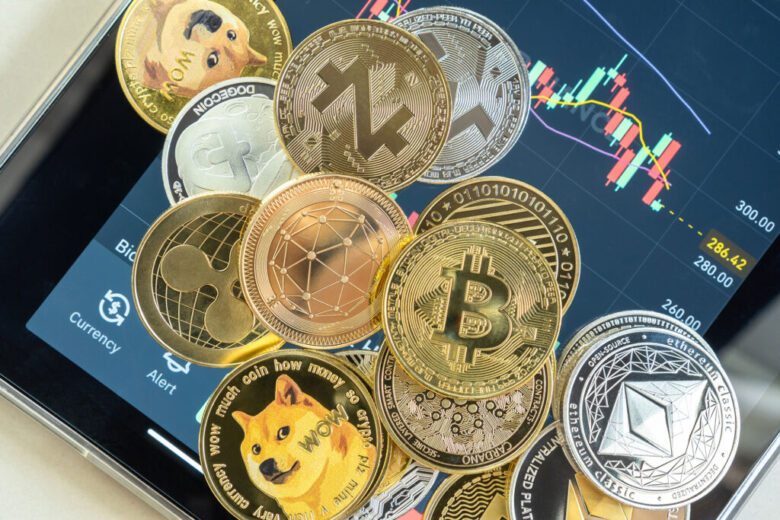Cryptocurrency has revolutionized online payments and attracted investors with its promise of rapid appreciation. But what exactly is cryptocurrency?
As opposed to traditional currencies issued by governments, cryptocurrency relies on blockchain technology for its decentralization. This comprehensive guide for beginners offers everything they need to know about cryptocurrency – its advantages, risks and security considerations.
1. What is Cryptocurrency?
Cryptocurrency is a digital payment method that utilizes encryption techniques to conduct secure transactions without recourse to banks or governments, but rather managed via a decentralized peer-to-peer network of computers connected by peer to peer networks known as blockchain systems that validate and process cryptocurrency transactions securely – thus making it nearly impossible for hackers to manipulate its value.
Cryptos enable people to send value quickly and at low fees worldwide, unlike traditional money transfers which may take days to process or incur steep international transfer fees. This flexibility may allow people in developing countries access banking services or purchase items that wouldn’t otherwise be available locally.
Before investing, it is crucial that you fully understand the risks. Cryptocurrency prices can be highly unpredictable and rapidly fluctuate in value – this makes cryptocurrencies attractive as an investment option, yet also poses serious risk that could result in substantial losses.
2. What is Bitcoin?
Bitcoin is a decentralized digital currency that facilitates peer-to-peer transactions without relying on a central authority for transaction management or coin issuance; instead, all this work is completed collectively through Bitcoin network’s blockchain.
Bitcoin solves an essential need on the internet by enabling people to transfer value without intermediaries (banks, credit card companies or lenders). Furthermore, its unique characteristics cannot be replicated using traditional fiat currencies like dollars and euros.
As with any investment, purchasing Bitcoin poses risks. The price can be extremely volatile and if you don’t carefully manage your risk exposure it could cost you dearly. To reduce volatility it’s essential that you understand how Bitcoin works and its underlying technology, as well as familiarizing yourself with blockchain technology – used not only by Bitcoin but many other cryptocurrencies too! To protect yourself against its volatility it’s also worthwhile familiarizing yourself with other cryptocurrencies as this technology forms the backbone for their transactions and blockchain is used by them both as it supports Bitcoin transactions but is used by many other cryptocurrencies too! To reduce volatility it’s essential that you understand how they work as it uses blockchain technology as this is what powers its backbone for its transactions – to protect yourself against its volatility it is necessary that you understand its underlying technology as well as being familiarized with other cryptocurrencies too if not already.
3. What is Ethereum?
Ethereum is a platform designed for developers to create decentralized applications (dApps) and smart contracts on. Additionally, its native cryptocurrency known as Ether powers the platform – its creator Vitalik Buterin likened it to both an app store and smartphone in terms of how developers use its tools for creating complex decentralized software apps and financial apps. Unlike Bitcoin which serves primarily as digital money storage space for consumers, Ethereum provides more tools to empower software engineers creating decentralized software solutions like decentralized financial apps.
The Ethereum blockchain provides a running tally of transactions similar to that kept in a bank ledger or checkbook, yet also allows for greater flexibility through smart contracts – coded agreements which automatically execute when certain conditions are met. Dapps on Ethereum range from games to non-fungible tokens representing images or videos and non-fungible financial applications (DeFi) that enable lending, borrowing, trading and savings without central authorities being involved.
4. What is Litecoin?
Litecoin (LTC), launched in 2011, was created as an attempt to overcome some of the shortcomings associated with Bitcoin by providing faster transaction speeds and lower fees. LTC serves as an electronic currency used for payments over blockchain networks.
Contrary to fiat currencies that are controlled by governments, cryptocurrencies are peer-to-peer and decentralized. Mining for cryptocurrency uses proof-of-work where computers from all around the world compete to add transactions to a blockchain and earn rewards; Litecoin uses Scrypt algorithm verification of transactions and has a fixed supply that won’t increase over time.
LTC is widely accepted by merchants, making it suitable for online and in-person shopping through payment platforms like BitPay. LTC may also be stored in wallets to be exchanged for other cryptocurrencies or used through staking programs to generate income yields.
5. What is Binance Coin?
Binance is a cryptocurrency exchange that enables users to buy, sell and trade cryptocurrencies through multiple payment methods – bank deposits, credit cards and P2P transfers are just some. Furthermore, Binance features such as its Academy provide further education about cryptos and blockchain technologies for users.
The Binance Coin (BNB) is the native cryptocurrency of Binance Exchange and was introduced as an utility token for discounted trading fees; its scope has since expanded into other applications.
BNB can be used on Binance to pay transaction fees and buy goods and services from certain merchants, in addition to participating in its Launchpad platform where new crypto projects are launched with an initial coin offering (ICO).
6. What is Cardano?
Cardano is a cryptocurrency and blockchain platform designed to be scalable, sustainable, and interoperable. Based on research-driven engineering principles rooted in science and decentralization principles.
It is powered by the ADA token, which allows holders to pay transaction fees and gain rewards by staking. Furthermore, holders can participate in protocol governance and vote for platform upgrades with this cryptocurrency asset.
Plutus, an open source smart contract platform written in Haskell with high-assurance code, allows the creation of custom tokens on this platform that can be used for anything from loyalty programs to representing real estate or commodities assets.
As with other cryptocurrencies, Cardano can be stored safely in digital wallets – secure locations where private keys are kept – such as hot and cold wallets. A hot wallet connects directly to the internet and can be accessed anytime while cold wallets require physical devices like Trezor or paper wallets in order to access.




